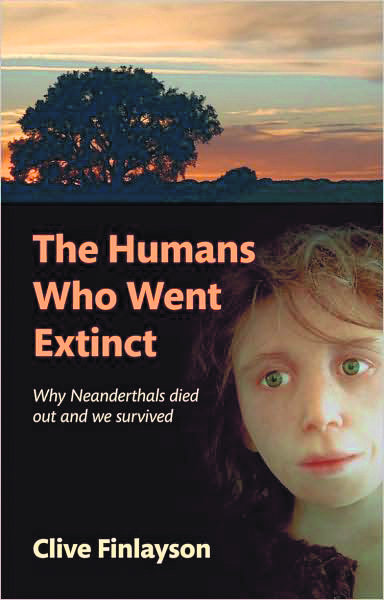 If you’ve watched the History Channel or any of a number of BBC documentaries over the last decade, you probably have a crystal clear image in your mind of the rise and fall of our Neanderthal relatives. You’ve learned that though they were a hearty and barrel-chested species, their more primitive tools and thrusting spears were no match for our superior H. sapiens technology. Slowly, as our ancestors migrated out of Africa, we out-competed our (possibly kissing) cousins, and through slow, natural selection, you and I emerged as the last Man standing.
If you’ve watched the History Channel or any of a number of BBC documentaries over the last decade, you probably have a crystal clear image in your mind of the rise and fall of our Neanderthal relatives. You’ve learned that though they were a hearty and barrel-chested species, their more primitive tools and thrusting spears were no match for our superior H. sapiens technology. Slowly, as our ancestors migrated out of Africa, we out-competed our (possibly kissing) cousins, and through slow, natural selection, you and I emerged as the last Man standing.
But according to Clive Finlayson, the whole thing may not be so cut and dry. In fact, he’s going to convince you that the picture in your mind is flat out wrong.
In his 2010 opus The Humans Who Went Extinct: Why Neanderthals Died Out and We Survived, Prof. Finlayson points out – in abundant detail – how our current model was developed, and how science has latched onto scant and even inconclusive evidence to support some truly grandiose theories. The Archaeology is good: we have an abundance of tools, habitation sites and other evidence to show that *someone* was living, evolving and innovating across Africa and Eurasia during the Upper Pleistocene, but the fossil record is inconclusive, and doesn’t provide enough evidence to back up the tidy account in most docu-dramas.
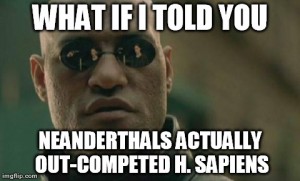 Short of just pooh-poohing the current model though, the author builds and presents his own detailed and lucid account of the evolution and migration of early Man. Finlayson takes an holistic approach to the rebuilding the history of the Homo genus: he draws from a broad spectrum of sciences to support his ideas, most notably geology and paleoclimatology, and the results are not only believable but compelling.
Short of just pooh-poohing the current model though, the author builds and presents his own detailed and lucid account of the evolution and migration of early Man. Finlayson takes an holistic approach to the rebuilding the history of the Homo genus: he draws from a broad spectrum of sciences to support his ideas, most notably geology and paleoclimatology, and the results are not only believable but compelling.
Depending on your tolerance for detail, you may find this book on the ‘protracted’ side. The crux of the book probably could have fit into 100 pages or less (the ebook copy is 275pp), but where Finlayson is presenting a new idea, he’s providing reams of supporting evidence and explanation. The writing itself is easily accessible to the layman, but you need to bear in mind the author’s academic background, and that he must cover all his bases to satisfy scrutinizing colleagues.
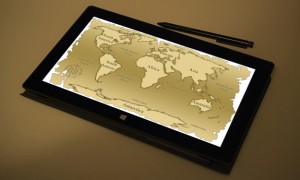
Keep one of these close at hand so you don’t become lost among the many species names, places and timeframes.
One further side note: Unless you are a Geography major and perhaps a Paleoanthropologist on top of that, you’re going to want an internet-connected tablet with access to maps and probably Wikipedia as your reading companion. The author presents examples from a myriad species, geographical locations and geologic time periods, and wrapping your head around these is central to understanding his thesis.
We’re being very careful not to give too much away here… but whether you end up agreeing with Prof. Finlayson’s arguments or not, you can’t help but be mesmerized by his profound grasp of the process of speciation in the real world. To walk away with only a piece of that enlightenment is worth the cost of admission, and well worth the time invested with your nose between the pages.
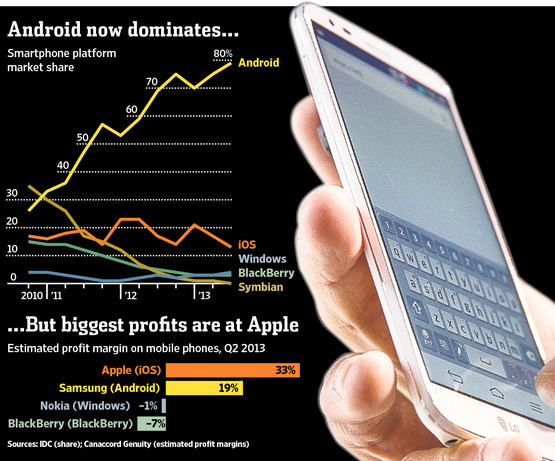
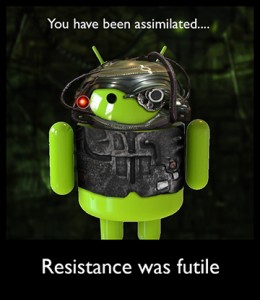 Monopolies are very good at keeping competition out of their marketspace. Android may be open source, but Google is a for-profit business with infinitely more lawyer/bully resource than the open-source community. If they choose to ‘bend’ (or flat-out break) the OSS rules, there’s precious little anyone can do about it. With the beginnings of a firm strangle-hold on the industry, Google could easily use it’s position to bolster profit margins and lock-out 3rd-party innovations.
Monopolies are very good at keeping competition out of their marketspace. Android may be open source, but Google is a for-profit business with infinitely more lawyer/bully resource than the open-source community. If they choose to ‘bend’ (or flat-out break) the OSS rules, there’s precious little anyone can do about it. With the beginnings of a firm strangle-hold on the industry, Google could easily use it’s position to bolster profit margins and lock-out 3rd-party innovations.